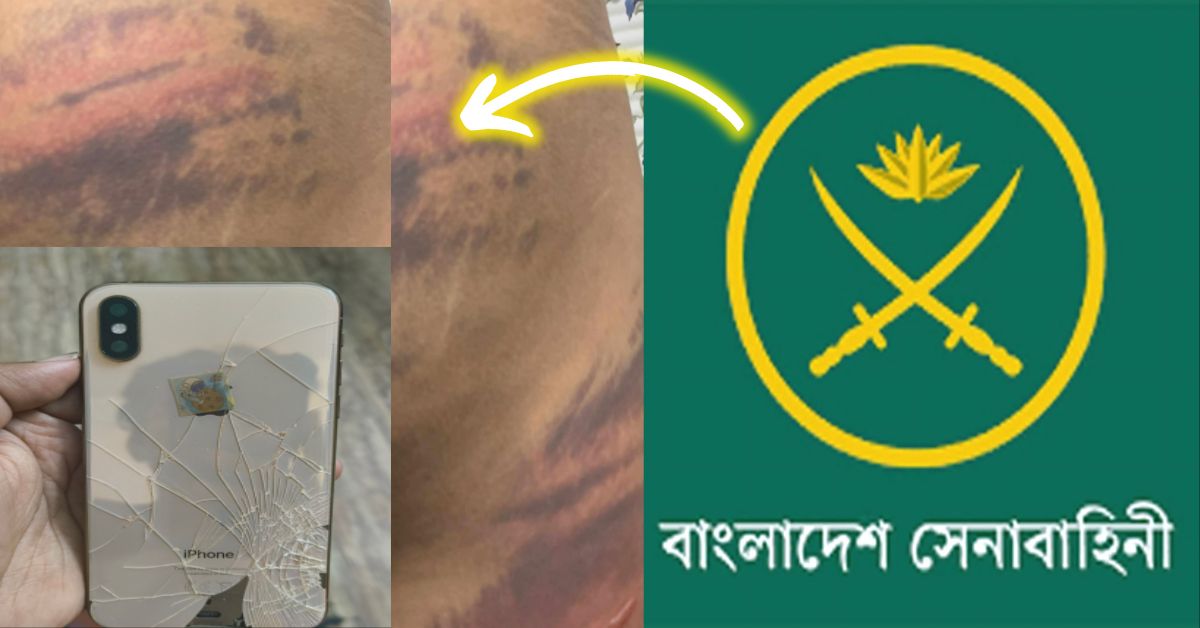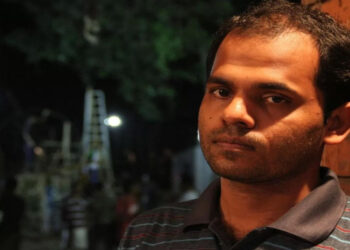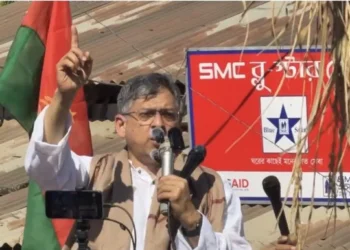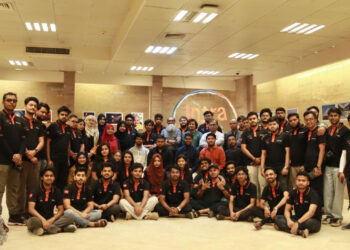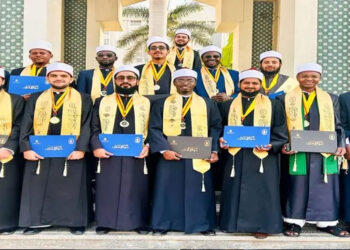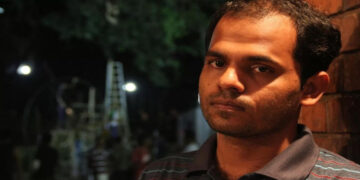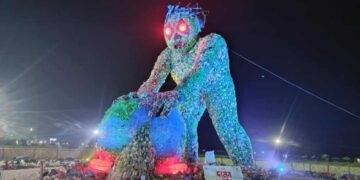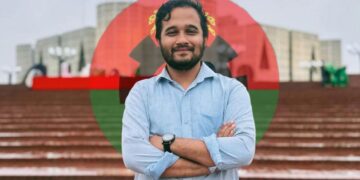Kalshi Steel Bridge, Mirpur DOHS Road, Dhaka, Bangladesh, 22 June 2025, 3:15 PM, Ten students of a university were allegedly subjected to physical and mental torture by the army on their way back from Tanguar Haor, according to a Facebook post.
How is Incident Happen?
The students boarded the bus from Netrokona at around 11 pm and reached Khilkhet area at 3:10 am. Ten students split into three CNGs and set off on their way back to their respective halls. The victim student and three others were in one CNG. After crossing Kurmitola, they were allowed to go after showing their university ID cards at the police checkpost. But then an army patrol stopped the CNG at the army checkpost at Kalshi Steel Bridge.
Two soldiers and two policemen began questioning the students. Showing their ID cards, the students said they were third-year students at a private university and were returning home after a tour. But one soldier asked,
“আপনারা ঘুরতে গেছেন আপনাদের কি কলেজ থেকে পাঠিয়েছে?” আবার বলে “স্কুলে বলে গেছেন?” “হলে আপনার স্যার রুম চেক করেনা যে রুমে নেই আপনার?”
Translation: “Did the college send you to go on a trip?” He asked again, “Did the school tell you?” “Then your sir doesn’t check the room that you’re not in?”
They expressed contempt and distrust through such comments. At one point, they said, “Call me to talk to Sir.”
The students said that at 3 am, naturally, no teacher picked up the call. The victim student was forced to call one of his friends, who is a captain in the army.
One of the soldiers took the phone and spoke to the officer. The student was then taken out of the car and a soldier gave him a hard shove with four fingers. He said to the person next to him,
“এই লাঠিটা দে তো!”
Translation: “Give me this stick!”
The student protested,
“আপনি গায়ে হাত দিলেন কেন? লাঠি নিয়ে থ্রেট দিতে চাচ্ছেন?”
Translation: “Why did you put your hand on me? Are you trying to threaten me with a stick?”
The response was,
“দাঁড়ান, সিনিয়র আসছে।”
Translation: “Wait, the senior is coming.”
Later, a JCO (Junior Commissioned Officer) came to understand the incident and wanted to release them, but the lower-ranking soldiers were reluctant to release anyone until a “Dada” or higher-ranking soldier arrived.
While waiting for the seniors to arrive, two policemen made negative comments towards the students and one taunted them by saying “nothing will happen” in the future. Finally, about 30-40 soldiers arrived in two pickup trucks. A senior officer got out of the vehicle and said,
“আমিও ল স্টুডেন্ট। আপনাদের মধ্যে কে কথা বলবেন? কি হয়েছে বলুন।”
Translation: “I am also a law student. Which one of you will speak? Tell me what happened.”
Meanwhile, they also spoke to the assistant provost of the hall, but nothing changed. Instead, the army members complained that the student had “behaved” with two soldiers. Then the incident took a more terrible turn.
A soldier suddenly dragged the student and about 8-10 of them started beating him with sticks. Within 30 seconds, the student received 50-60 blows on his back. Someone started pressing him down to hit him. The beating continued with unspeakable abuse. He received several blows to his hand, one finger was cut and another was bleeding. The officer came and called him again, after which he was called to be beaten again. At one point, the soldiers asked the student to sit down by holding his ear and forcefully said,
“আর জীবনে এমন করব না, আমার ভুল হয়েছে, আমি শিক্ষা পেয়েছি।”
Translation: “I will never do this again in my life, I made a mistake, I have learned my lesson.”
In this state too, he was beaten with sticks. The student said that he was hit by at least 250-300 sticks during the entire 25-30 minute incident. At that moment, the phone in his pocket was damaged and later the phone’s picture proved its condition.
Finally, the senior officer himself was present and lifted the three students, including the student, into the CNG. He asked the remaining four to be taken to the other side of the road so that they could be given the same ‘education’. However, that was not possible as the officer was present. After the incident, he went to the university medical center on Sunday afternoon for primary treatment. He was given medicine and ointment from there. Later, on Monday, when he went to Islami Bank Hospital in Mirpur, the doctor gave him bed rest.
Read More: “Before It’s Too Late”: Dr. Yunus Calls for Global Action to Save the World
If The Incident is True, The Question Arises, is It Legally Valid?
According to the Constitution of Bangladesh and the prevailing criminal law, a person is presumed innocent until proven guilty. No force has the right to physically assault anyone without a crime, without a charge, without a warrant, or without a warrant, the army is no exception.
According to criminal law, under the Bangladesh Penal Code 1860:
•Section 323: Punishment for wilful injury or physical abuse is prescribed, which may be imprisonment for up to one year, fine, or both.
•Sections 341, 342: Legal action can be taken against obstructing the movement of someone or unlawfully detaining them.
Does this law apply to members of the army?
Here comes the “military justice system” i.e. Military Justice System. Members of the Bangladesh Army are generally subject to trial under the Army Act (Army Act, 1952). Unlike ordinary citizens, they are not directly prosecuted under criminal law, but are tried through internal investigations and military courts.
However, if someone in the army has committed irregularities against an ordinary citizen, and the accusation is proven, then the state or the High Court (High Court/Supreme Court) can force the army to take action under the court order. There are precedents in the past, if someone in the army or other forces violates the law, they have faced punishment through investigation.
What are The Rights of Citizens Under The Law?
1. Fundamental Rights: According to Articles 31 and 32 of the Constitution, every citizen has the right to protection by law.
2. Physical Security: It is completely illegal to physically harm or threaten anyone without due process of law.
3. Equality before the law: According to Article 27 of the Constitution, all citizens are equal before the law.
There has been no official statement from the army on the incident yet. However, the post has gone viral and has sparked a discussion on social media and the media. If the incident is true, the army must conduct an impartial investigation and take appropriate explanation and action.
If the experience described in the Facebook post is true, then it is not just a warning signal for one person, it is a warning signal for the entire society. In Bangladesh, no force is above the law, this is the main statement of the constitution. Therefore, prompt investigation and transparent accountability are the demand of the hour.
Reference
The Army Act, 1952
Bangladesh Penal Code, 1860

